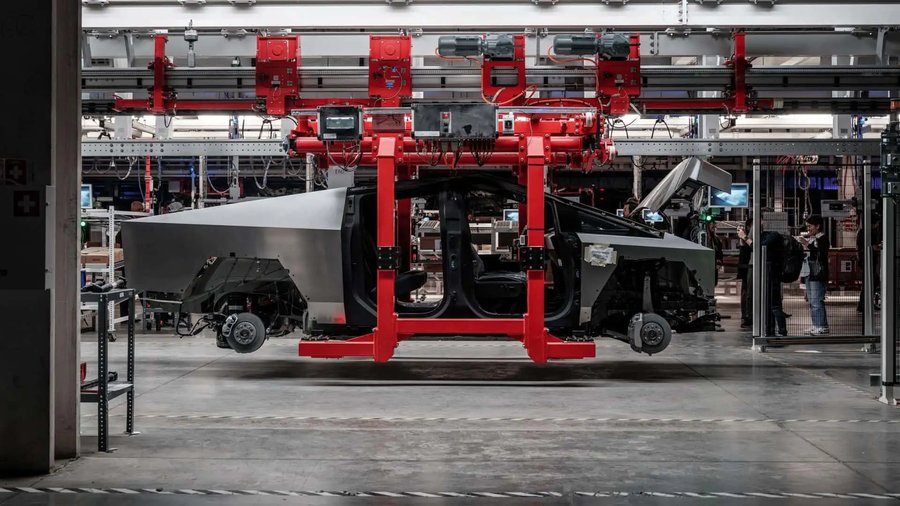Tesla Cybertuck Line Workers Told To Stay Home: ‘No Need To Report To Work’

Workers at Tesla's Austin factory were told to stay home for three days. The Austin plant manufactures the Cybertruck.
The Tesla Cybertruck is arguably the most controversial new vehicle on the market–five years after it was initially shown to the public in prototype form. Some love it, others hate it, but one thing is clear: you’ll be noticed on the road if you happen to be inside a Cybertruck.
It’s an attention-grabbing machine, and its sales success has so far been undeniable. It managed to climb to the top of the best-selling electric pickups chart in the second quarter in the United States, surpassing the Rivian R1T and Ford F-150 Lightning, both of which have been on sale for longer.
But the initial boost seems to be drying out. Yesterday, workers at Tesla’s Austin factory, which assembles the Cybertruck, were told to stay home for the next three days, according to a memo seen by Business Insider. "On Tuesday, Wednesday, and Thursday this week (Dec. 3-5), you do not need to report to work," the memo said.
Workers were told to report back to work on Friday and that they would still be paid for the three days that they were supposed to work. Tesla doesn’t reply to questions from the media, so there’s no way of confirming if this is related to a demand problem or something else. Some workers would not follow the adjusted schedule and would be notified separately, the memo said.
However, factory workers on the Cybertruck line have occasionally been given other duties instead of building trucks since late October, according to Business Insider. Four workers said they had inconsistent schedules in the past month, either because they were sent home or given additional training exercises or cleaning duties instead of regular duties.
"When I started at Tesla you could expect to get overtime pay, now I feel lucky to get 40 hours," one worker on the Cybertruck line said.
Back in April, Tesla shortened the shifts for workers on the Cybertruck production line in Austin, Texas, as per a memo seen by Business Insider. Then, in October, the automaker started deliveries of the non-Foundation Series models–which are at least $20,000 cheaper than the limited-edition models that were the first to ship.
Fast-forward a few weeks and the alleged multi-year backlog of orders appears to have dried out in just a few months, with Tesla inviting reservation holders who pre-ordered as late as 2023 to get their trucks.
In total, fewer than 30,000 Cybertrucks were sold and registered in the United States in the first nine months, according to data from Cox Automotive and Kelley Blue Book. In the first two quarters combined, 11,558 Cybertrucks were sold in the U.S., with the third quarter marking 16,692 registrations. The numbers are on the rise, so it will be very interesting to see what will happen in the last quarter–will the numbers go up or down? By the looks of it, Tesla managed to ramp up production significantly in the previous quarter, but if fewer people want the angular pickup, it makes sense to tone down the assembly line pace to avoid filling delivery centers with inventory.
Related News
